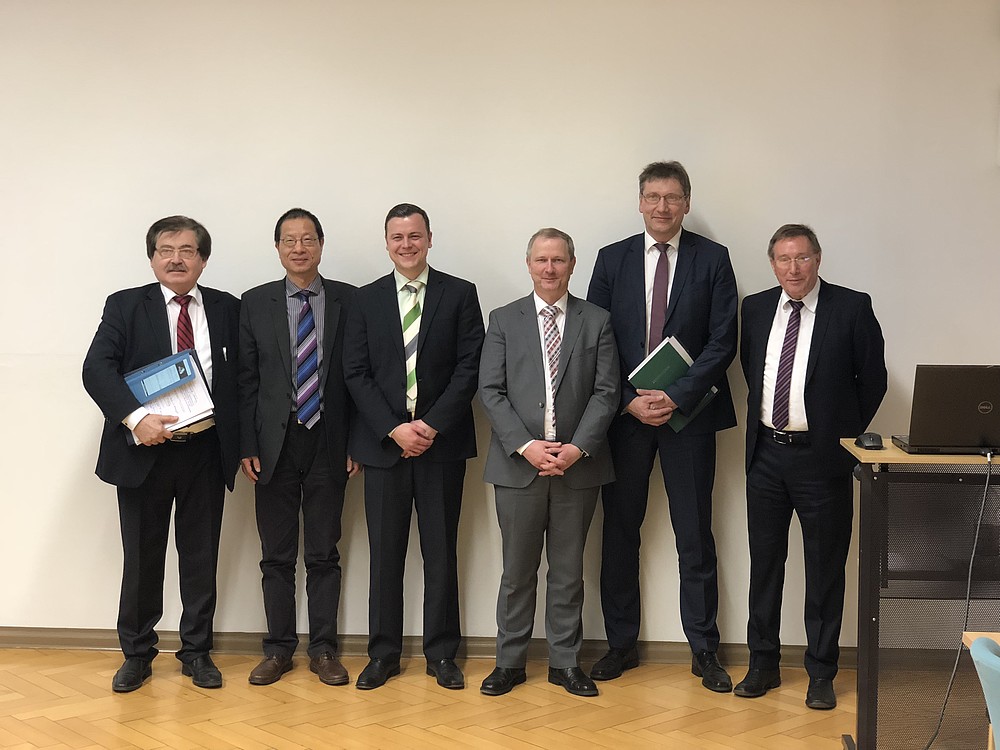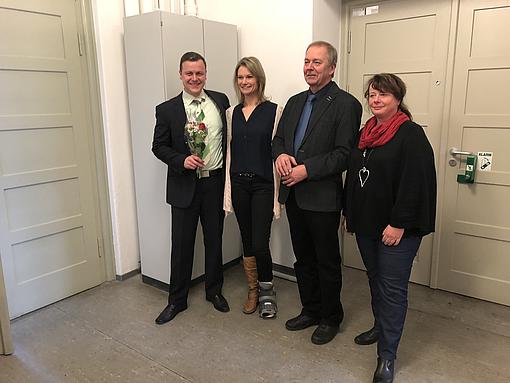On February 14, 2018, Sebastian Schmidt from the Institute of Process Engineering, Process Automation and Metrology (IPM) successfully defended his dissertation at the Faculty of Mechanical Engineering at Dresden University of Technology. The dissertation is entitled "Development and validation of a method for condition monitoring of the reactor pressure vessel during beyond design basis accidents in pressurized water reactors" and was awarded the grade "magna cume laude" by the doctoral committee.
Mr. Schmidt worked from 01.07.2012 to 30.09.2015 as a research associate in the joint project "Non-invasive condition monitoring of nuclear reactors for the detection of level changes and core deformation (NIZUK)" funded by the Federal Ministry of Education and Research (BMBF). The partners in this project were the Zittau/Görlitz University of Applied Sciences (BMBF funding number: 02NUK018A) and the Technical University of Dresden (BMBF funding number: 02NUK018B). The project was managed and the doctorate supervised by Prof. Dr.-Ing. Alexander Kratzsch (Director IPM) and Prof. Dr.-Ing. habil. Uwe Hampel (AREVA Endowed Chair for Imaging Measurement Methods for Energy and Process Engineering at the Institute of Energy Technology at the Faculty of Mechanical Engineering at Dresden University of Technology).
The project was based on the central question of whether it is possible to measure a core meltdown in the reactor pressure vessel of a nuclear power plant with a pressurized water reactor, such as the one that occurred in Fukushima in 2011. The first major challenge was to create a suitable database as a basis for the investigations. In the course of the project, this was determined by the employees of the Technical University of Dresden using extensive Monte Carlo simulations of gamma radiation transport inside and outside a reactor pressure vessel for a generic pressurized water reactor.
Another major challenge of the joint project was the development of a measurement procedure for core condition diagnosis or a so-called core condition monitoring procedure. The aim of Mr. Schmidt's doctorate was to solve this challenge. Through the application of model-based structural health monitoring methods, the definition of core states during a core meltdown accident and the development of suitable classification methods (including artificial neural networks of the multilayer perceptron type), the development of the core state monitoring procedure was successfully realized. During his doctorate, Mr. Schmidt also succeeded in experimentally validating the developed method using the NICOLE (NonInvasive Condition monitoring of Level and core) test rig.
In the course of this year, Mr. Schmidt will have to undergo the most difficult challenge for the completion of his doctorate with the solemn post-defence of his dissertation in front of his colleagues at the IPM.

Contact
Director Institute of Process Engineering, Process Automation and Metrology (IPM)
Prof. Dr.-Ing. Alexander Kratzsch
Phone: 03583 612 4282
E-mail: a.kratzsch(at)hszg.de



